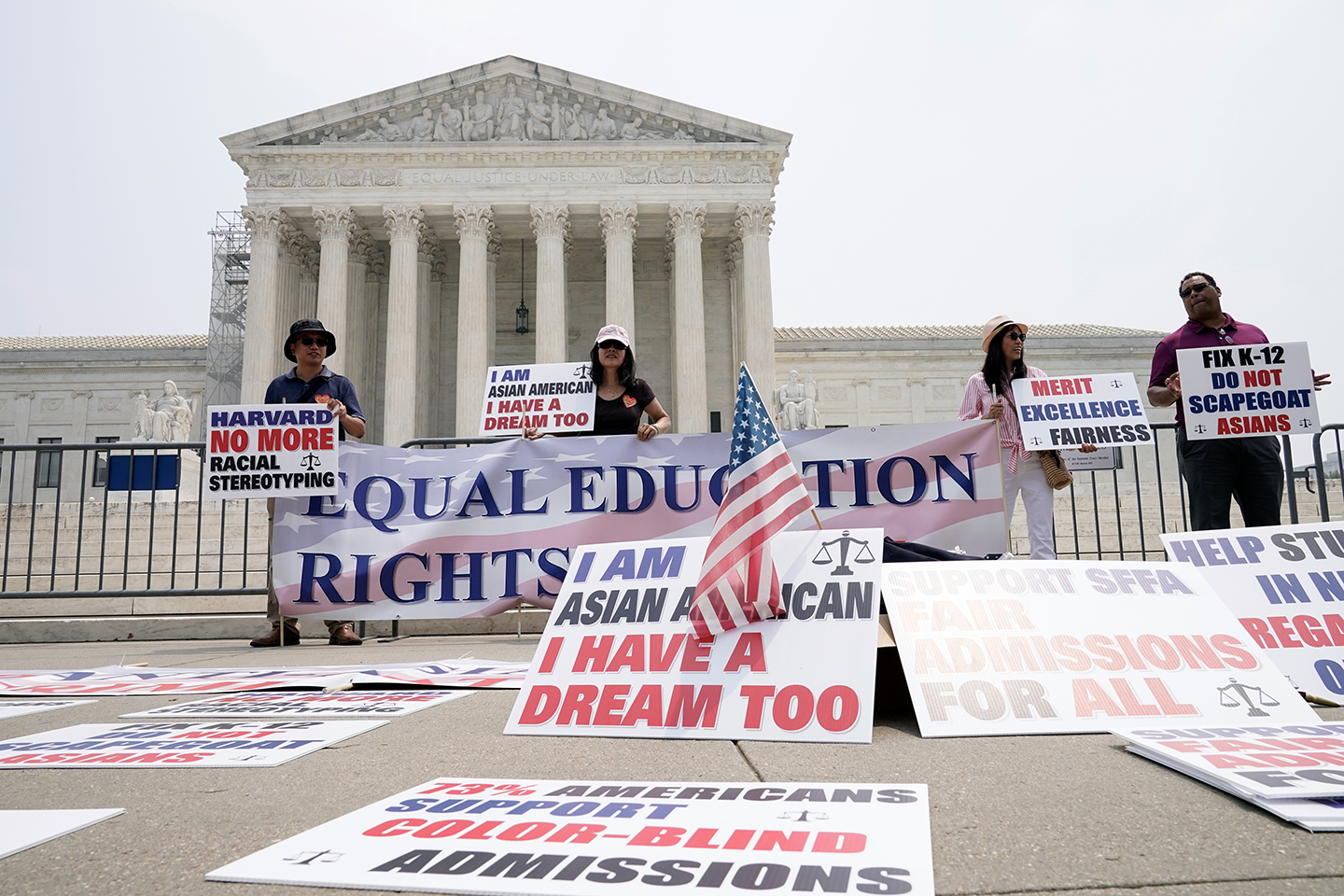On June 29th, 2023, the US Supreme Court ruled to overturn affirmative action. They deemed it constitutional for colleges to take race into consideration as a pertinent factor in admission, often ending up helping some races and hurting others. Chief Justice Roberts wrote that “Many universities have for too long wrongly concluded that the touchstone of an individual’s identity is not challenges bested, skills built, or lessons learned, but the colour of their skin,”.
How did the public react?
The American public seems divided on this monumental decision. A poll that took place just a month short of the affirmative action ruling found that 63% of Americans didn’t think that the Supreme Court should ban affirmative action in college admissions. Justice Sonia Sotomayor wrote that the court was “merely” imposing its “preferred college application format” on the country by “taking on the role of college administrators to decide what is better for society.”
“Because the Court cannot escape the inevitable truth that race matters in students’ lives, it announces a false promise to save face and appear attuned to reality,” she wrote. “No one is fooled.”
What does this mean for the future?
But what does this mean? Although this is a big step that has been paved for students who would have otherwise been rejected from these colleges, there are still many factors affecting a person’s college admission. One of the most common ways wealthier students get into elite colleges is to donate huge sums of money towards an institution’s buildings. “Money allows you to really engage with a different network of resources,” said Wil Del Pilar, a former admissions specialist and current president of higher education for the nonprofit Education Trust. The Harvard legacy acceptance rate is predicted to be more than five times higher than that of non-legacy students as of the previous year.
Bibliography
- Piper Hudspeth Blackburn. (2023, June 29). What the Supreme Court’s ruling on affirmative action does and does not do. CNN; CNN. https://edition.cnn.com/2023/06/29/politics/what-affirmative-action-ruling-does-scotus/index.html
- Hinger, S. (2023, July 12). Moving Beyond the Supreme Court’s Affirmative Action Rulings | ACLU. American Civil Liberties Union. https://www.aclu.org/news/racial-justice/moving-beyond-the-supreme-courts-affirmative-action-rulings
- Waxman, O. B. (2023, June 29). Supreme Court Rules Against Race-Based Affirmative Action. Time; Time. https://time.com/6291182/affirmative-action-supreme-court-decision-overturns/









